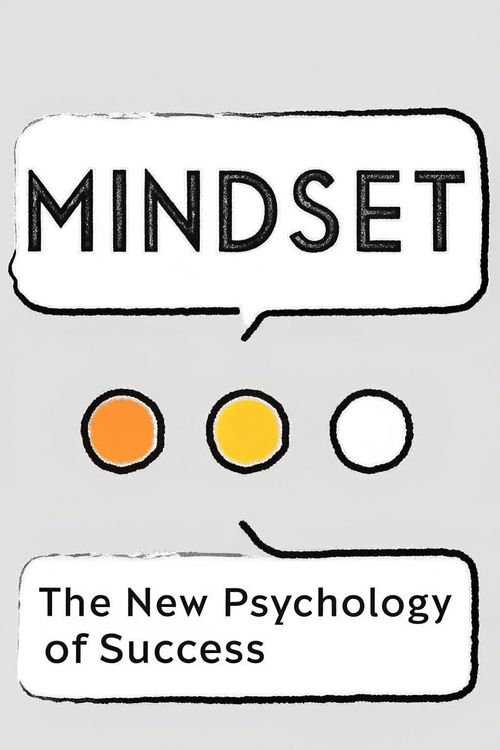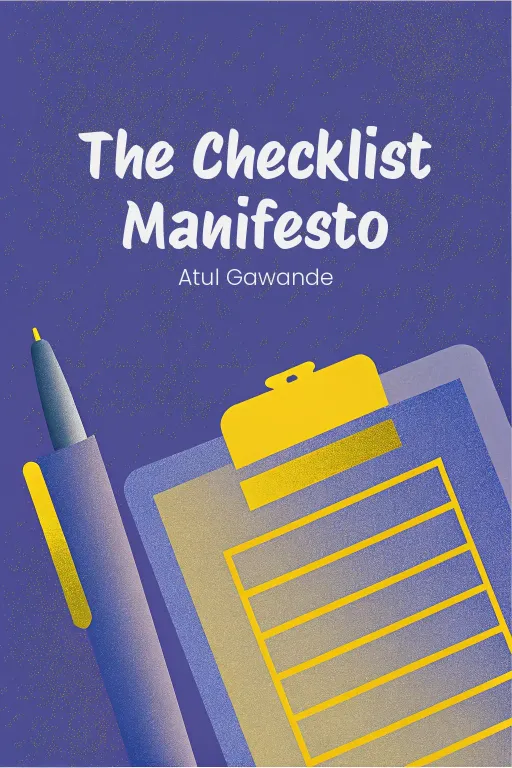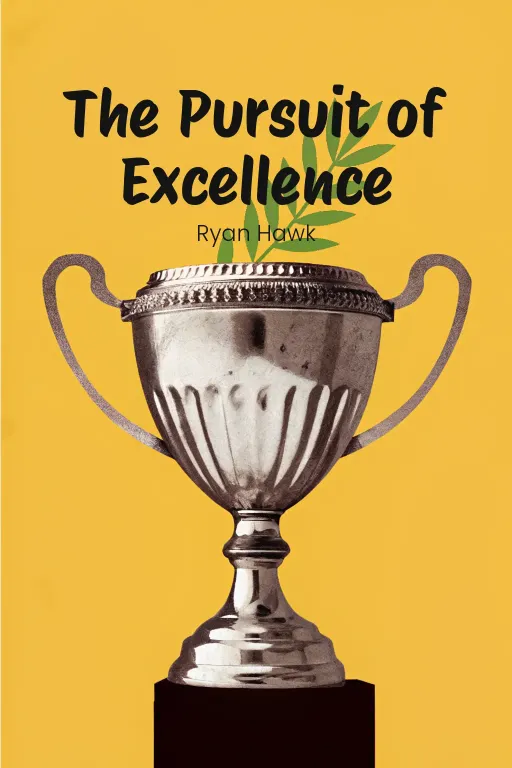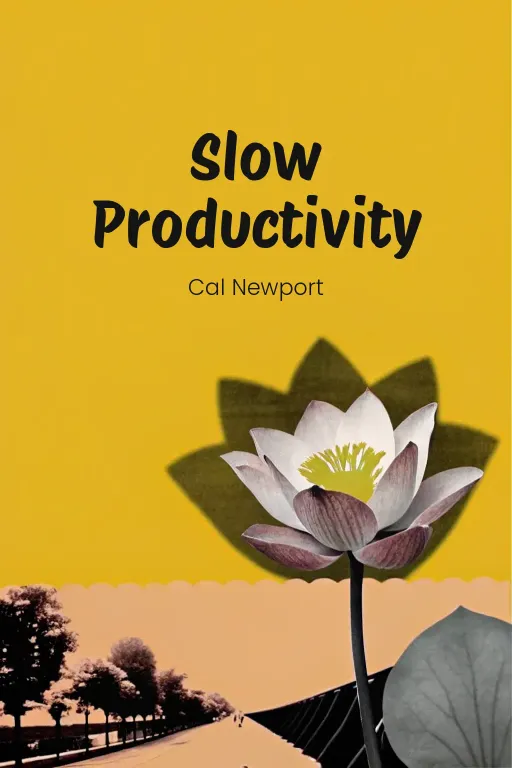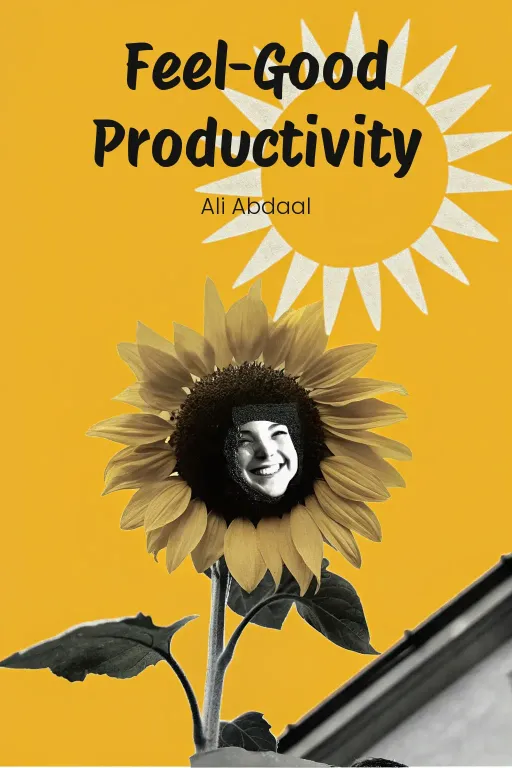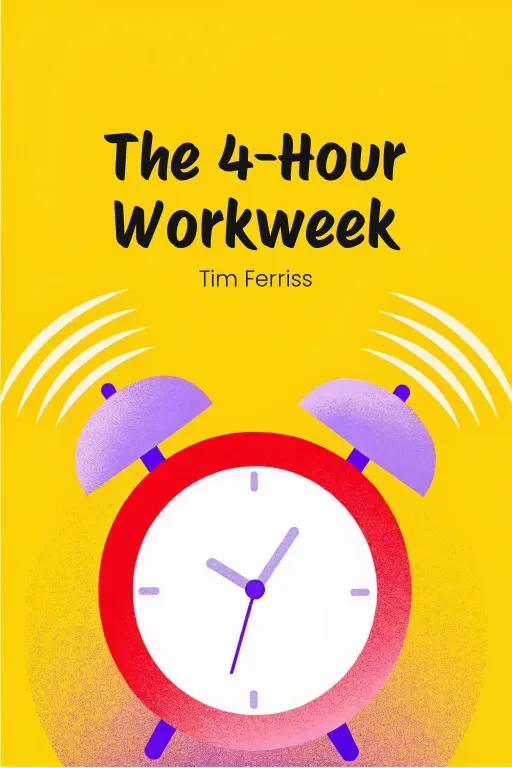
Fix Yourself First!
Podcast by Beta You with Alex and Michelle
Powerful Lessons in Personal Change
Introduction
Part 1
Alex: Hey everyone, welcome to the show! Today we're diving into a classic—Stephen Covey's “The 7 Habits of Highly Effective People”. If you ever feel like you're just chasing quick fixes and not getting anywhere, or wondering why those life hacks just don't stick, this is for you. Michelle: Oh, the self-help bible! Everyone's heard of it, but how many people have actually read it cover to cover? Only when facing "new year, new me" moments, right? So, what makes this book different from all the other self-help stuff out there? Alex: That's a great question, Michelle. Covey’s not about those surface-level tricks. His approach is what he calls "inside-out." It’s about fixing things internally first, instead of just slapping a band-aid on external problems. It’s really a deep dive into aligning your character with universal principles for growth that actually lasts, in your own life and in your relationships. Michelle: Okay, "inside-out," got it. So we're not talking about quick magic tricks or 30-day fix-it challenges? That's pretty bold for self-help, isn't it? Alex: It is bold, but that's why it's so powerful! Covey structures his ideas around seven habits – key steps to becoming truly effective, both personally and with other people. Think of it like building a house; you start with a solid foundation of personal discipline, then you add on collaborative skills, and finally, you make sure the whole thing aligns with timeless principles. That’s, the “roof,” if you will, that can handle any storm. Michelle: Building a house, huh? I hope we get a user's manual along with this podcast! So today, we're talking foundations, construction, and rooftops... what exactly are we going to break down? Alex: We’ll kick things off by looking at Covey's "inside-out" idea, and why it challenges some of the typical self-help stuff you see out there. Then, we'll get into each of the seven habits – really practical tools that take you from being dependent on others to becoming independent and then working effectively with others. And finally, we'll talk about how these principles can be a compass, helping you stay on course no matter what life throws at you. Michelle: I like where this is going – a bit of philosophy, some actionable tools, and a blueprint for long-term results. Sounds like we're about to delve into the architectural masterpiece of the self-help world! Let's get started!
The Inside-Out Philosophy
Part 2
Alex: Okay, so picking up from there, let's dive into the heart of Covey’s work: the Inside-Out Philosophy. It's really the foundation of everything he talks about, and it's a pretty powerful idea. Basically, it’s about changing how we think about change itself. Instead of trying to fix things on the outside – you know, like relationships, your job, or even just getting more done – Covey says that real, lasting change starts from within. Michelle: Right, so we're talking about looking in the mirror, not wishing on a star. I get that, but why does Covey think this is so important? What makes going inside-out better than, say, just hustling harder or putting on a happy face? Alex: That's a great question, Michelle. Covey contrasts two ways of thinking about success: Character Ethics and Personality Ethics. Character Ethics are about those timeless qualities – things like integrity, humility, and just plain hard work – things that make you who you are. Personality Ethics, on the other hand, focus on the surface – being charming, charismatic, basically how you appear to others. And while those things can help you in the short term, like nailing a job interview or making a good first impression, they don't last without that inner foundation. Michelle: So, Personality Ethics are like slapping a bandage on a broken bone – it might look good, but the real problem is still there? Alex: Exactly! And Covey uses a bit of history to explain this. Before World War I, success was almost always linked to character. Think about Benjamin Franklin, writing down his values like honesty and perseverance. But after the war, things shifted. People started focusing on how you came across, not who you were deep down. Michelle: Ah, gotcha. Those "How to Win Friends and Influence People" vibes – you know, project confidence, flash a smile, and boom, you're a winner! But what's the catch? Alex: Well, the catch, as Covey points out, is that personality ethics might get you some quick wins, but they actually damage trust and intimacy in the long run because they're not authentic. He even tells this story about his son – he and his wife tried using external things like encouragement and rewards to build their son's confidence at first. But their underlying feelings – that their son wasn't "enough" – came through, and it actually held him back. Michelle: Hmm, that's interesting. It's like giving someone a beautifully wrapped gift, but inside it's empty – or worse, filled with criticism. Alex: Right! But when they changed their approach, focusing on their own biases and giving their son unconditional love and trust, they saw real growth, not just pretending. It’s a perfect example of addressing your own internal mindset to change what is happening outwardly. Michelle: I see. So figuring out your internal issues will then fix your external issues? I got it. But that's kind of abstract, right Alex? What does someone actually do to work on this? Alex: Good point. Covey outlines three main things. First, “self-awareness”. That's the ability to watch your own thoughts and actions. It’s about recognizing the "paradigms" that you are using – those mental maps we all use to navigate the world. A lot of these are shaped by society or family, and sometimes they’re just plain wrong. Michelle: Oh, you mean like thinking you have to hate Mondays just because society created the weekend? Alex: <Laughs> Something like that. But Covey goes deeper. If your default mindset is, “I’m not good enough,” everything you do will be affected by that belief – you'll doubt yourself and hold yourself back. So, changing these deep-seated beliefs takes real work. You have to align them with certain principles such as integrity and service. Michelle: A paradigm shift, then. But I imagine changing your established mindset takes a while? I mean, we live in a world that wants instant results. Alex: Exactly, and that’s why the second element is staying committed to principles for the long haul. Covey doesn't try to sell you a quick fix; he believes that the most profound change comes from embodying virtues like humility, justice, and bravery. These principles are not abstract concepts, they’re the foundation of trust, stability, and of course effective leadership. Michelle: So it’s like planting a tree: you can’t expect shade after a day or two, but if you commit to it, you get something worthwhile and lasting. Alex: Precisely! And finally, Covey mentions how important it is to place your core values at the heart of your relationship. He reiterates that you cannot fix others, be it your partner, colleague, or even superior, unless you first address your own flaws. It’s about taking charge and being responsible for the aspects you can change, rather than just reacting to circumstances. Michelle: So basically, we are all walking around pointing fingers, when the secret is to fix ourselves, which is a tough pill for many to swallow. Alex: It is, but the key is grasping that it transforms you internally. When your patience and empathy grow, it generates outward ripples. Relationships flourish because you don’t force changes, rather you are creating a setting where trust and legitimacy are important. Michelle: I get the logic. But what does Covey recommend in relationships where both parties have to work on their mindsets? Alex: He does, and he suggests emphasizing components within your power such as responses and decisions to avoid trying to fix the other person. When someone projects authenticity and trust, it paves the way for joint advancement. Michelle: Sounds easier in theory, but I guess to climbing Everest, you must take one step forward. The main point is that you cannot resolve life’s circumstances, your relationships, or yourself without internal assessment and without looking for quick fixes. Alex: Covey’s Inside-Out Philosophy is really the foundation for the seven habits he talks about. And it makes it clear that true success isn’t just about what you do, but who you are. And once you get that part right, everything else will begin to fall into place. Michelle: All right, so the initial step to correcting your life actually starts with fixing yourself. Fine, Covey, you’ve convinced me to rethink my personality-driven charm.
The Seven Habits Framework
Part 3
Alex: So, understanding this philosophy really sets the stage for building some super effective habits, both personally and in our relationships. Covey’s seven habits? They give you a framework—some really specific practices that help us turn these principles into, you know, actual action. This whole progression, moving from really getting yourself together to really connecting with other people, mirrors what Covey calls a "maturity continuum"—it starts with dependence, then you grow into independence, and, finally, you achieve interdependence. Michelle: Okay, so it’s like leveling up in a video game, right? You start by fixing your own character, then you learn to team up, and finally, you're the ultimate collaborative boss. Got it. But how does this whole journey… actually work? Alex: Well, it starts with what Covey calls the "Private Victory," which is basically the first three habits. This phase is all about self-mastery—really, what you need to do to become independent. Once you've nailed that, you’re ready for the "Public Victory," which really emphasizes relationships and collaboration. And the seventh habit? That’s like… maintenance. It sustains your effectiveness through constant renewal. Michelle: Private victory sounds nice and shiny, but it also sounds very individualistic. Aren’t we humans supposed to, you know, thrive in community? Why not just dive straight into teamwork? Alex: That’s a great question. Covey would say that you can't really do effective teamwork, much less build real connections, without first understanding yourself. Think about it: If you lack self-discipline, or if your actions are shaped by insecurity, those weaknesses are going to seep into every interaction. Private victory builds the internal…groundwork you need to engage with others authentically. Michelle: So, if I'm falling apart inside, I’m probably not bringing my A-game to the team. Okay, let’s start cracking open these habits. What's the first step on this maturity ladder? Alex: Habit 1: Be Proactive. This is about taking personal responsibility. Covey points out that our lives are shaped more by our choices than our circumstances. Instead of just reacting to stuff, proactive people focus on their "Circle of Influence"—the areas where they can actually make a difference—and they let go of things outside their control, which is the "Circle of Concern." Michelle: So, the first thing is to stop blaming Mercury in retrograde or the weather and just focus on what I can control, huh? I get that, but…doesn’t it feel a little…limited? What if my circle is, like, tiny? Alex: Here’s the magic: By focusing on what you can control, you actually expand your Circle of Influence. Covey tells the story about the father struggling with his son. Instead of trying to control the child—which is in the Circle of Concern—he started adjusting his own behavior by becoming more patient and supportive. Over time, this actually deepened their relationship, and that, in turn, positively influenced the son’s behavior without direct intervention. Michelle: Oh, so instead of micromanaging everyone else, you tweak your own approach and just let the ripple effects do the work. That's clever. Moving on—what's next after controlling my little circle? Alex: Habit 2: Begin with the End in Mind. This one tackles purpose by asking you to really define what matters. Covey encourages people to create a personal mission statement—a blueprint of your values and your long-term goals. The idea here is to consciously design your life around what you want to be remembered for, not just reacting to whatever happens. Michelle: A mission statement for life? Sounds very corporate. Am I supposed to whip up a PowerPoint about my "life goals" next? Alex: No, no, it’s more reflective than that! Covey prompts us to think about what we'd want our loved ones to say about us at our funeral. Dark, I know, but this exercise forces you to reassess your priorities considering the legacy you want to leave. Michelle: Oh, that’s… an existential punch to the gut. And yet, I see the point—figuring out that finish line helps you stop wandering through the maze blindfolded. Any stories where someone had an “aha moment” with this? Alex: Yes, Covey shares about an executive whose relentless career climb damaged his family relationships. He realized he'd been chasing success as defined by his job, not by his own values. By drafting a mission statement where family and work had equal weight, he realigned his actions—like scheduling more time for his children—and really found both fulfillment and better relationships. Michelle: So, chasing success without a map turns into a wild goose chase that just makes you miserable… Noted. Where do we go from here—what's Habit 3? Alex: Habit 3: Put First Things First. This is all about time management and prioritization, and it's anchored in Covey’s Time Management Matrix. The goal is to focus on activities that are important but not urgent—what Covey calls Quadrant II. These are the things that promote long-term success, like building relationships, planning, or self-care. But too often, people get bogged down in Quadrant I—urgent crises—or, even worse, in Quadrants III and IV, which are just…distractions. Michelle: So, the people who answer emails at midnight or binge-watch cat videos instead of tackling real goals are stuck in those lower quadrants. Got it. But what if life feels like one constant crisis? How do you move into Quadrant II without everything falling apart? Alex: You have to intentionally make time for what matters. Covey’s example of the small-business owner stuck in constant crisis mode is really great. When he focused only on firefighting, there was no time for strategic growth. Only by scheduling dedicated time for Quadrant II tasks—like employee training and process improvements—did he eliminate recurring problems and truly stabilized his business. Michelle: Let me guess—focusing on Quadrant II feels slow at first, but it pays off big by preventing future chaos, right? Alex: Exactly. The key is that by aligning your time with your mission—what you defined in Habit 2—you create meaningful progress that amplifies, instead of just treading water. Michelle: Alright, that’s private victory wrapped up: take responsibility, align your goals with your values, and prioritize what truly matters. This is starting to feel less overwhelming and more methodical. What happens next as we transition to…other people? Alex: The next three habits—Habits 4 through 6—shift us into "public victory" territory, focusing on building trust, fostering collaboration, and working effectively with others. These really build directly on the solid foundation of self-mastery from the private victory. Let’s take Habit 4, for example—Think Win-Win…
Principle-Centered Living
Part 4
Alex: So, with the inside-out mindset in place, the seven habits give you a step-by-step way to build yourself up. But here's where it gets really interesting—principle-centered living. It's the last piece, and it takes everything further. It’s about seeing how principles are like a compass, bringing your personal and professional lives together. Michelle: Okay, so we're not just talking about habits anymore, but the “reason” for having them. It's like, "What kind of life do I want, “really”?" So, what makes these principles so special in Covey’s view? Alex: Well, the key is stability. Covey sees principles—things like fairness, integrity, service—as universal truths. They’re like lighthouses. Unlike external stuff like money, jobs, or even relationships, which can change, principles are solid. They don't depend on what's happening around us. Michelle: Like building your house on solid rock instead of sand. Sounds good, but is it realistic? Life gets complicated; people have bills, deadlines... How do principles fit in? Alex: That’s what Covey addresses. He calls those other things "external centers." When what we think of ourselves relies on money, possessions, or even relationships, we’re not stable. Those things can disappear fast, leaving us lost. But living by principles means you can handle ups and downs because you know who you are and what matters to you. Michelle: So, external centers are only good when things are going well. Does Covey give examples of that backfiring? Alex: Absolutely. He talks about being "money-centered." A father gets so focused on work, he ignores his family. He thinks he’s helping them, but he misses out on important moments, hurts his relationships, and feels empty inside. It’s only when he focuses on connection and time that he fixes things. Michelle: Right, you can't buy love or time, no matter how much money you make. What about being work-centered? Alex: Exactly. People who are driven by work define themselves by their job title or achievements. And while ambition's good, making work your whole life throws everything off balance. Covey talks about someone who had amazing career success, but when layoffs hit, they felt completely lost. Their identity vanished with their job. Michelle: So, don't count on your career for everything, or you'll be in trouble if things change. Alex: Exactly. Covey says, tie your work to principles instead of letting it define you. When work is about contributing and not just validation, you have perspective and it doesn't take over your life. Michelle: I get it. Money and work are shaky foundations, but possessions probably fit in here too. The whole "keeping up with appearances" thing. Alex: Yes, being possession-centered is a big problem. Covey talks about how chasing material things for happiness is a trap. You might feel great when you get something new, but it fades fast, and you want the next thing. It never ends. Michelle: You can’t take it with you, sure, but wanting nice things is normal, right? Where's the line? Alex: The line is when stuff becomes more important than relationships, growth, or helping others. Covey doesn't say you can't enjoy things, but center your life on principles, not objects. For example, if you value generosity, you might use your possessions to help others, instead of just showing off. Michelle: Alright, money, work, and possessions – got it. What about relationships? Family-centeredness sounds good—giving everything to your family? Alex: It sounds good, but it can be a problem if you take it too far. Covey says when your self-worth depends on family—like a parent basing their identity on their kids' success—it creates pressure. The parent might be too focused on their own validation, which limits individuality within the family. Michelle: So, it's parents living through their kids, making them excel, even if the kids don't want to? Alex: Exactly. Covey believes people who live by principles love and respect their family unconditionally, guiding them without trying to control them. These relationships feel more genuine, without the insecurity from family-centered dynamics. Michelle: Let me guess – principles fix it again. Fairness, respect... like glue, whether it's with work, family, or anything else. Alex: Exactly! Principles are the true center, keeping you steady no matter what happens. Covey shares a story about someone facing big career problems. Instead of panicking or being dishonest, they stuck to fairness. This not only helped their career in the end, but it strengthened relationships with family and coworkers. Michelle: Proof that sticking to principles can get you through tough times, even if it takes a while. But how do people actually start living this way? Alex: Covey has two main ideas. First, self-reflection. Ask yourself, "What do I rely on for my self-worth?" and "Do my actions match my values?" This helps you realize if you're too focused on external things. Michelle: Ask yourself tough questions, think hard, and see where you've gone wrong. And the second? Alex: Create a personal mission statement. Write down your commitment to principles like fairness or honesty. When things are crazy, this statement reminds you who you are and guides your choices, in both personal and professional settings. Michelle: So, when things get tough, your mission statement is like a life raft, keeping you focused on your values. Alex: Exactly. The great thing about principle-centered living is that it's about long-term meaning and stability, not just temporary things. Imagine building your life on what truly matters. Michelle: Sounds great... and hard. But I see how Covey aims for something more than just checking boxes. Principles do seem like the best way to navigate this messy world.
Conclusion
Part 5
Alex: Okay, Michelle, as we come to the end, let’s recap the main points. Covey’s Inside-Out Philosophy, at its core, tells us that real effectiveness begins with ourselves, focusing on our character rather than just surface-level behaviors. And the seven habits? They really guide us on a journey—from mastering ourselves to achieving synergy in our relationships—all built on principles like integrity, fairness, and service. They're not just things you do; they're a way of life that allows you to navigate life with a sense of stability and purpose. Michelle: Right, and what really resonated with me is the idea of principles as this unshakeable foundation. They keep us grounded, especially when we're dealing with tough times at work, in our relationships, or when we're just constantly bombarded with distractions. It’s definitely not a magic bullet, but Covey makes a pretty convincing argument that if something needs fixing, it has to start with you. Alex: Precisely. So, the key takeaway here is: make sure your daily actions align with these timeless principles, spend some time thinking about what’s genuinely important to you, and build a life based on purpose rather than chasing after things that don’t last. Start small, but get started! Because real, lasting change, well, it starts from the inside out. Michelle: Nicely put, Alex. If nothing else, I'm definitely rethinking my usual quick fixes. Principles over patches, got it. Sounds like a plan.
